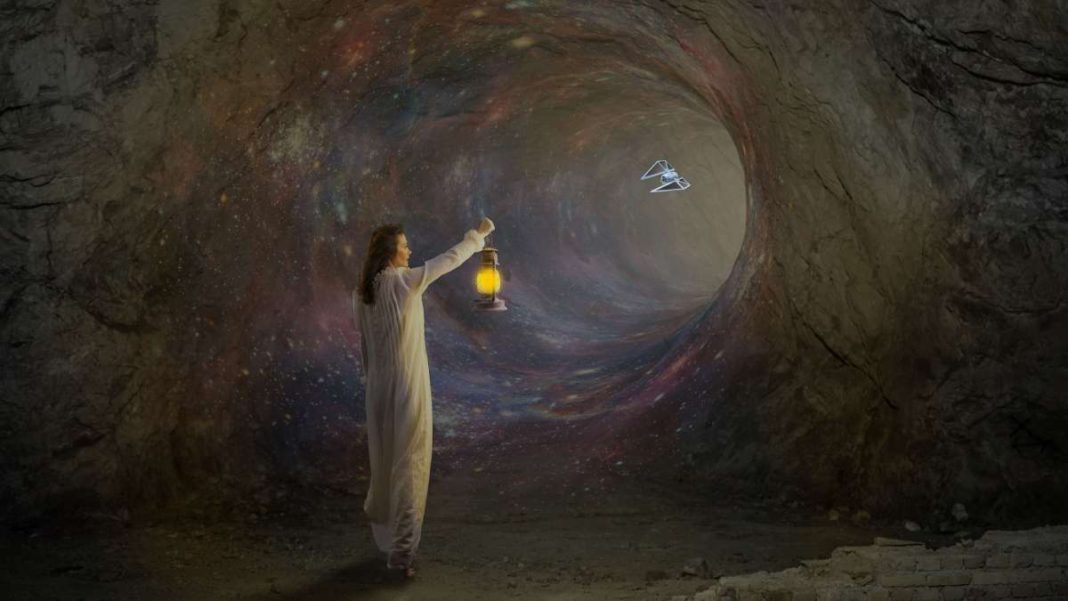ENGLAND: In a new study, researchers have explored the intriguing concept of time travel using quantum entanglement. This Gedankenexperiment, a thought experiment inspired by Albert Einstein, pushes the boundaries of theoretical physics and challenges our understanding of time.
The fascination with time travel
Time travel has long been a captivating theme in popular culture, from H.G. Wells’ “The Time Machine” to Hollywood blockbusters like “Back to the Future.” While the notion of traveling through time remains the stuff of science fiction, the latest research suggests that, in the realm of quantum physics, the boundaries of time may be more flexible than we ever imagined.
Quantum Entanglement: A mysterious connection
At the heart of this experiment lies the enigmatic phenomenon of quantum entanglement. In the world of quantum physics, particles become entangled, creating a mysterious connection where the properties of one particle instantaneously affect the other, regardless of the physical distance that separates them. This baffling phenomenon has been a topic of fascination and puzzlement for physicists for decades.
Effective Time Travel: A Gedankenexperiment
Researchers embarked on a Gedankenexperiment, using quantum entanglement to simulate a form of “effective time travel.” The experiment played out as follows: Photonic probes were subjected to quantum interactions with the aim of achieving specific outcomes. What makes this experiment truly remarkable is that, through entanglement, researchers could adjust the quantum probe’s values after the operation had already taken place. This flexibility allowed them to aim for a better outcome, even after the initial result had been observed.
Challenging our understanding of time
The outcome of this experiment challenges the very concept of time. Instead of adhering to the conventional “arrow of time,” where time only moves in one direction, quantum entanglement appeared to blur these boundaries. It seemed as though this phenomenon had the potential to generate instances that effectively looked like time travel.
Success and challenges
However, it’s essential to note that the experiment’s success rate was not without its challenges. Researchers found that the time travel effect occurred only once every four times, resulting in a 75% failure rate. To address this, they proposed a solution: introducing a significant number of entangled photons and using a filter to separate those carrying the revised information from the outdated particles. This approach could potentially increase the chances of achieving a successful time travel-like outcome.
The future of quantum time travel
While this experiment opens doors to new possibilities and challenges our understanding of time, it remains firmly in the realm of theoretical physics. The practical application of quantum entanglement for time travel is a topic of intense debate and further research.
David Arvidsson-Shukur, the quantum physicist at the University of Cambridge who led the study, emphasizes that this Gedankenexperiment appears to defy the constraints of traditional physics. It serves as a testament to the boundless nature of human curiosity and the uncharted territories within the world of quantum physics.
In conclusion, the recent experiment using quantum entanglement has ignited discussions about the potential for time travel, albeit in a theoretical sense. While it may not lead to time machines reminiscent of science fiction, it demonstrates that there is much we have yet to uncover about the fundamental nature of time and space.
As our knowledge of quantum physics continues to evolve, it promises to be an exciting journey filled with new discoveries and profound insights into the mysteries of the universe.
Also Read: Time Traveller’s Dilemma: The Grandfather Paradox and its Mind-Bending Consequences



